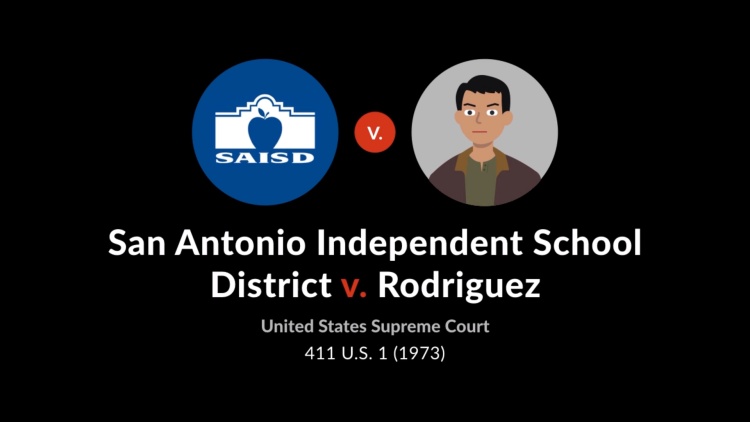San Antonio Independent School District v. Rodriguez
United States Supreme Court
411 U.S. 1, 93 S. Ct. 1278, 36 L. Ed. 2d 16 (1973)
- Written by Megan Petersen, JD
Facts
Mexican-American parents (plaintiffs) whose children attended schools in the Edgewood Independent School District brought a class-action suit (with Rodriguez as the class representative) in district court against the San Antonio Independent School District (defendant). The suit was brought on behalf of schoolchildren throughout the state who were members of minority groups or who were poor and resided in school districts financed by a low-property-tax base. In the late 1940s, the Texas legislature sought to mitigate the inequality of resources among school districts created by differences in property-tax bases. The legislature enacted the Texas Minimum Foundation School Program, which called for state and local contributions to a fund earmarked specifically for teacher salaries, operating expenses, and transportation costs. Individual school districts were responsible for providing 20 percent of the revenue for this fund and did so by imposing property taxes on citizens residing within the districts. The property values in Rodriguez’s district were far lower than property values in other districts, making the amount collected to educate Rodriguez’s children significantly less per pupil than that allocated for the education of children in more affluent districts. Rodriguez alleged that the disparity in public education funding and quality of education among school districts violated rights under the Equal Protection Clause of the Fourteenth Amendment to the Constitution. The district court held the Texas financing scheme was unconstitutional, and the San Antonio Independent School District appealed to the United States Supreme Court.
Rule of Law
Issue
Holding and Reasoning (Powell, J.)
Concurrence (Stewart, J.)
Dissent (Brennan, J.)
Dissent (Marshall, J.)
Dissent (White, J.)
What to do next…
Here's why 910,000 law students have relied on our case briefs:
- Written by law professors and practitioners, not other law students. 47,100 briefs, keyed to 997 casebooks. Top-notch customer support.
- The right amount of information, includes the facts, issues, rule of law, holding and reasoning, and any concurrences and dissents.
- Access in your classes, works on your mobile and tablet. Massive library of related video lessons and high quality multiple-choice questions.
- Easy to use, uniform format for every case brief. Written in plain English, not in legalese. Our briefs summarize and simplify; they don’t just repeat the court’s language.





